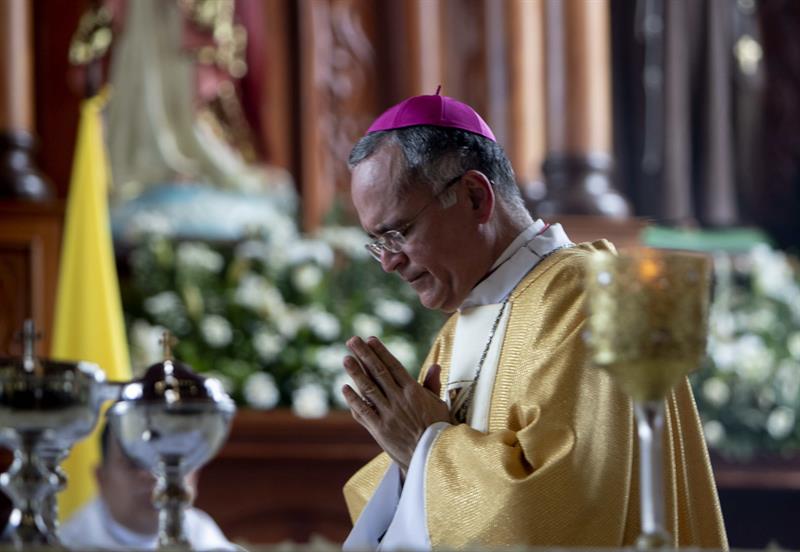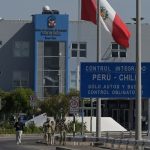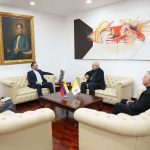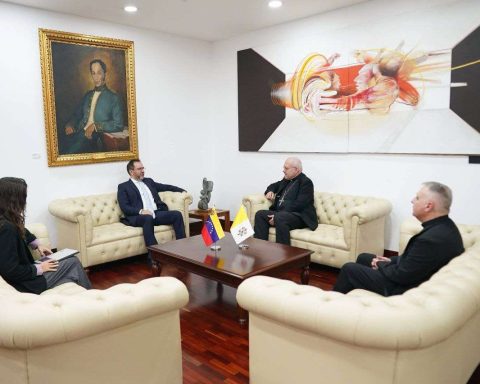Bishops Rolando Álvarez and Silvio Báez, defended in their homilies the work of the Nicaraguan Catholic Church in favor of the oppressed, and the denunciation of the arbitrariness suffered by citizens, on the part of “the powerful.”
The regime of Daniel Ortega and Rosario Murillo constantly attacks the Catholic Churcheven doing statements that were later confirmed to be falsehoodsto try to disqualify the work of the priests, considering that all this is beyond their role as spiritual guides.
“The political community and the Church in its own field are independent and autonomous. The Church has the mission and the right to deal with social problems, and when she does so she cannot be accused of exceeding her specific field of competence”, said Monsignor Rolando José Álvarez, Bishop of the Diocese of Matagalpa.
“This business of eliminating the prophets is something very old. It is always practiced by unjust, intolerant and violent systems,” said the auxiliary bishop of Managua, Monsignor Silvio Báez. “Today, those same sinister, unjust and corrupt systems, which cannot stand the truth and are unwilling to listen to God, slander and attack the prophets and offend and denigrate the Church,” he added.
The religious declared that “they cannot bear the announcement of truth and justice that exposes their evil and their crimes. Today’s powerful fear a prophetic Church, they would like to see the Church locked up in the sacristy, with its mouth shut and hopefully bowing before them. Not succeeding, they are filled with rage with aggressive speeches with which they do nothing more than show their own weakness and the darkness of their conscience.
Support the victims, the persecuted, and the exiled
“The Church, in addition to announcing the Gospel of salvation, [se mantiene] denouncing injustices wherever they come from, and constituting Christian communities. From there derives that the Church is not confused with the political community, and is not linked to any political system”, added Álvarez, also apostolic administrator of the Diocese of Estelí.
Báez recalled that “the ancient biblical prophets were always rejected, discredited, persecuted and even killed by their own people. God’s prophets do not seek to please their listeners by telling them what they would like to hear, nor do they seek to gain their approval, but they announce what God commands them to say. For this reason, as is still the case today, the prophets are uncomfortable and are the object of offenses, slanders and attacks”.
Referring to what the Church has had to live through over the centuries, Báez said that in “unjust societies, where the powerful want to silence the suffering of those who cry, the prophet lives and speaks from the compassion of God for the last and forgotten.
“The prophet denounces injustice and calls for conversion, shakes indifference and introduces a new hope, inviting us to think and build the future from freedom and justice, life and mercy. A society without prophets falls asleep and accommodates itself to submission and injustice. A Church without prophets becomes fearful and indifferent in the face of human suffering, running the risk of becoming deaf”, he added.
Finally, he reiterated that “there is no place for indifference. We must always support the victims, protect those persecuted by power and the exiles who flee to save themselves”.
Give to Caesar what is Caesar’s
In his homily, Monsignor Álvarez explained that “the political community and the Church… are independent and autonomous, although both are, in a different capacity, at the service of the personal and social vocation of man.”
“The Church has the right to be for humanity, teacher of the truth of faith, and also of the moral truth that springs from human nature itself, and from the Gospel. She also has the mission and the right to deal with social problems”, she added.
He recalled that “it is characteristic of the fundamental structure of Christianity, the distinction between what belongs to Caesar, and what belongs to God. The Church, as a social expression of the Christian faith, has independence from it, and lives its communitarian form based on faith, which the powers of this world must respect”.
“From here comes the freedom that the Church has to make its own decisions. No one can interfere or influence these decisions. From here also comes the autonomy that the Church has from all temporal power, be it social, political, economic, or ideological”, he concluded.

















